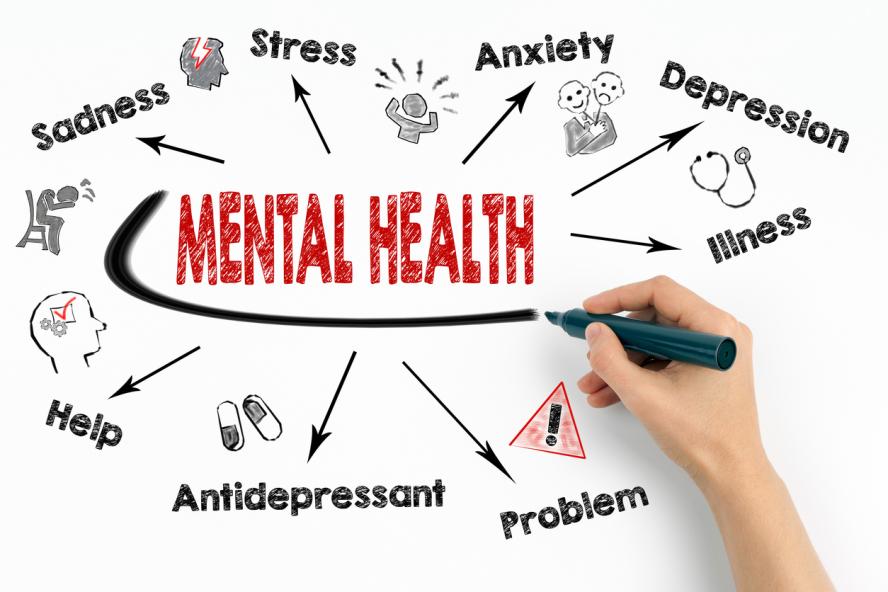-
About
- Leadership & Faculty
- News & Events
-
Academics
- Graduate
- Advanced Clinical Training
- Continuing Education
- Academic Departments
- Academic Offices
- Simulation Experiences
-
Student Life
- Offices
-
Research
-
Hospitals & Clinics
- Emergency Care
- Hospital Services
-
Community Outreach
- Volunteer
Supporting Student Wellness
Mental stressors have been increasingly weighing on students, but Cummings School has been ramping up the ways in which they support their wellness.

Cummings School strives to change the relationship with mental health
Pressure to succeed. Financial strain. School-life balance. All of these stressors have been weighing on students in an ever-increasing fashion. Veterinary students and veterinarians in particular are vulnerable to additional stressors like compassion, fatigue, and moral distress. “In general, we know that the rigor of veterinarians, doctor, and dental programs, often push students to the limit in terms of hours of studying hours, working at clinics, competitiveness with each other—and these are things that set up people to be really stressed out,” says Anna Cherubino, LMHC, an embedded affiliate at Cummings School of Veterinary Medicine.
So, since 2015, Cummings School has been ramping up the ways in which they support the wellness of students and staff. “I think we realized that in order for students to successfully get through a rigorous training program like a D.V.M. program, and also to be healthy throughout your career and to set good patterns and good habits, that it’s important to pay attention to mental health and wellbeing early on,” says Eric Richman MSW, LICSW, who joined Cummings School in 2017 as a clinical social worker, providing support for hospital clients—the first position of its kind in veterinary medicine in New England—and has since broadened his role.
Cummings School began adding student-specific support, including bringing two licensed clinical social workers, Cherubino and Bob Lenhardt, LICSW, to campus as well as Lynn Roy, D.V.M., a longtime veterinarian whose focus is now on student wellness—being out among the students and directing them to available resources.
Roy often acts as the first line of defense for the students, listening to them and referring them to other resources as needed. “I do what I call Take Care Tuesdays, so I make sure I’m on campus during their lunch break after they get out of morning classes so I am physically available for them,” she says. “My training is not counseling, but I’m a really good listener.”
Though there has been a longstanding stigma about mental health throughout all professions, the team at the Cummings Support Center has been working hard to overcome it. “What happens is, all too often, people feel like either they can handle it on their own or that it’s so bad that they don’t even want to talk to anybody,” says Richman. “Which, of course, isn’t true.”
“The first thing we try to do is help people feel comfortable with the process,” adds Lenhardt. “I explain to them that what we talk about is private—nothing is going to go back to the school or anywhere else with certain exceptions having to do with safety issues.”
The counselors also stress that no issue is too small to talk about and it doesn’t even have to be school-related. “I think everyone would benefit from therapy or therapeutic work in their lives where they put in effort to be the best version of themselves,” says Cherubino.
The ways in which Cummings School has provided support for the mental wellbeing of its students and staff have continually increased. Beyond professional resources, Cummings has provided support from peers, including during the height of the COVID-19 pandemic when isolation was at its peak when staff and faculty volunteered to call students and check in with them.
If you’re looking for additional ways to support your mental wellness, Cummings School provides the following offerings:
Cummings Connections
Led by Eric Richman, Lynn Roy, and Anna Cherubino, Cummings Connections is a group that meets weekly and is open to any students on campus. They begin with a short didactic topic on mental health or wellbeing—from perfectionism and anxiety to self-care and stress management—and then they open it up for group discussion. This group was formed to help students interact, connect, and provide mutual support to each other, in addition to receiving professional support.
24/7 Telephonic Counseling Services
A 24-hour hotline is available for students to call and talk with a counselor. No matter the hour, students can reach out at 800-756-3124 and know they are not alone.
Certified Mental Health First Aid Advocates
Fifty members of the Cummings community took part in a Mental Health First Aid training that helps them direct other community members in need to the right resources. Participants were certified for three years through the program and then Cummings School disseminated the names of all the certified people to the entire campus, including all the students.
Equine Assisted Learning
Equine-assisted learning is an elective course primarily for first and second-year students that provides learning tools using the power of the horse. Typically with eight to 10 students each semester, it’s a way to teach self-care and mindfulness techniques to help with stress management and relaxation when they’re going through such an intense program.
SAVMA Wellness Committee
The Wellness Committee is dedicated to providing students with healthy ways to manage the stresses of the veterinary profession and ways to reach out when needed. It aims to provide support through monthly events and a yearly Wellness Week held each spring.
Guided Meditation
Every third Tuesday of the month, Bob Lenhardt leads an online, guided mindfulness meditation. The entire campus is invited to participate.